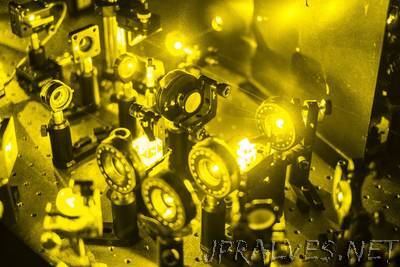
“Whenever we need to communicate in secret, a cryptographic key is needed. For this key to work, it must consist of numbers chosen at random without any structure - just the opposite of using the birthdate of our favourite pet. But, for a human, it is extremely difficult to choose without creating any bias, even by hitting the keyboard chaotically. To solve this problem, researchers from the University of Geneva (UNIGE), Switzerland, have developed a new random numbers generator based on the principles of quantum physics. This physical theory, full of phenomena that run counter to our common sense, shows that certain physical events occur perfectly at random, making them impossible to predict. Unlike previous methods, the new system allows the user to verify the reliability of the random numbers it generates in real time. This work, to appear in the scientific journal Physical Review Applied, will greatly complicate the tasks of hackers who can no longer exploit bias resulting from human fallibility or possible imperfections in existing devices. To generate a good cryptographic key, one must alternate randomly between 0’s and 1’s, the values of the so-called bits which form the basic unit of information in digital devices like computers. However, when we humans try to generate a sequence of numbers which we believe to be random, it always ends up being partly predictable, as revealed by behavioural studies and statistics. In addition, apart from having a poor grasp on randomness, the human brain is also much slower than machines, which can output millions of numbers per second. This gives hackers an opportunity to crack passwords, which the user thought to be safe.”
